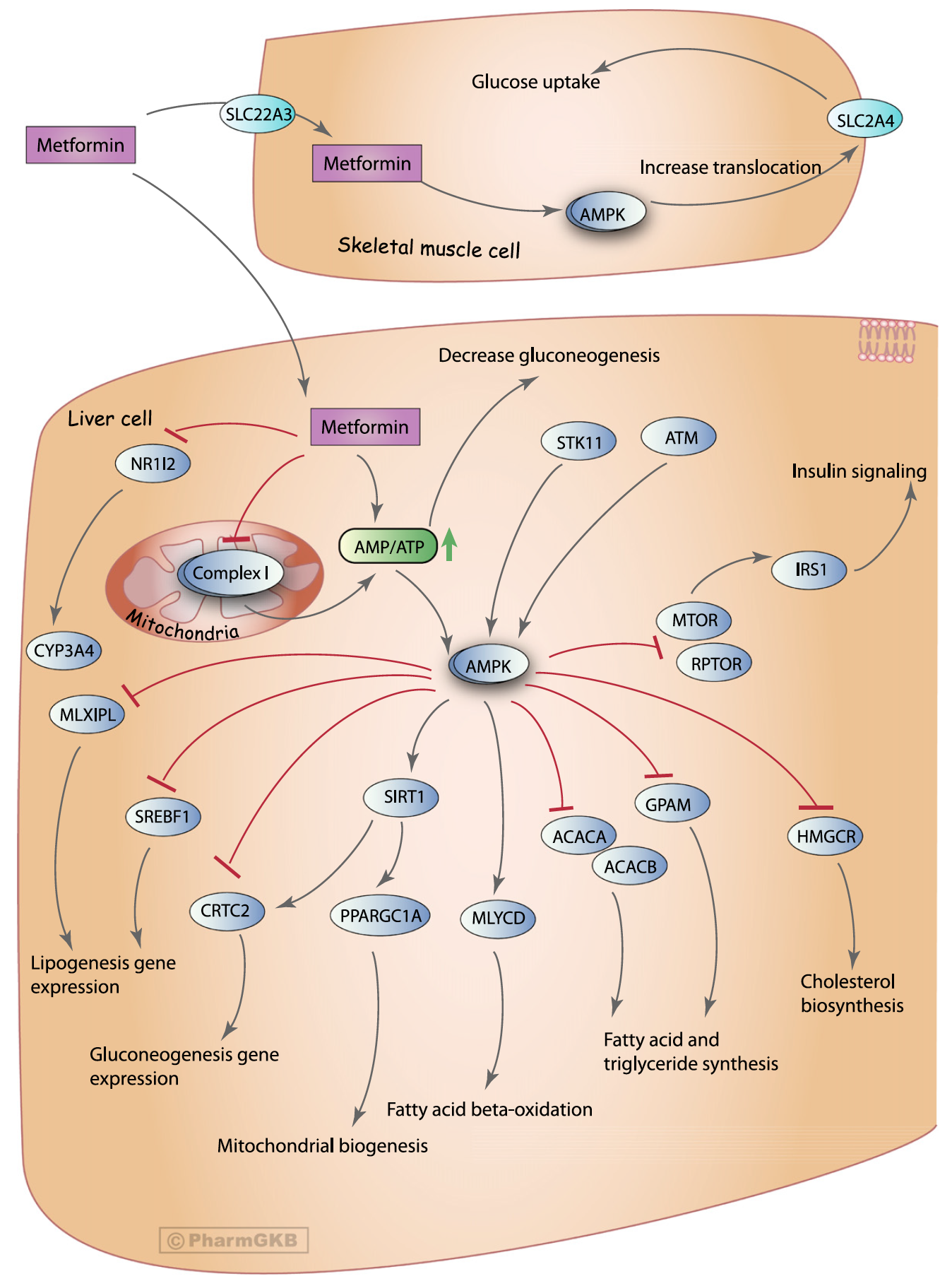Metformin pharmacogenomics: current status and future directions

The incidence of type 2 diabetes (T2D) and its costs to the health care system continue to rise. Despite the availability of at least 10 drug classes for the treatment of T2D, metformin remains the most widely used first-line pharmacotherapy for its treatment; however, marked interindividual variability in response and few clinical or biomarker predictors of response reduce its optimal use. As clinical care moves toward precision medicine, a variety of broad discovery-based “omics” approaches will be required. Technical innovation, decreasing sequencing cost, and routine sample storage and processing has made pharmacogenomics the most widely applied discovery-based approach to date. This opens up the opportunity to understand the genetics underlying the interindividual variation in metformin responses in order for clinicians to prescribe specific treatments to given individuals for better efficacy and safety: metformin for those predicted to respond and alternative therapies for those predicted to be nonresponders or who are at increased risk for adverse side effects. Furthermore, understanding of the genetic determinants of metformin response may lead to the identification of novel targets and development of more effective agents for diabetes treatment. The goals of this workshop sponsored by the National Institute of Diabetes and Digestive and Kidney Diseases were to review the state of research on metformin pharmacogenomics, discuss the scientific and clinical hurdles to furthering our knowledge of the variability in patient responses to metformin, and consider how to effectively use this increased understanding to improve patient outcomes.
Pawlyk_Metformin_workshop_PGx_Diabetes_2014.pdf


